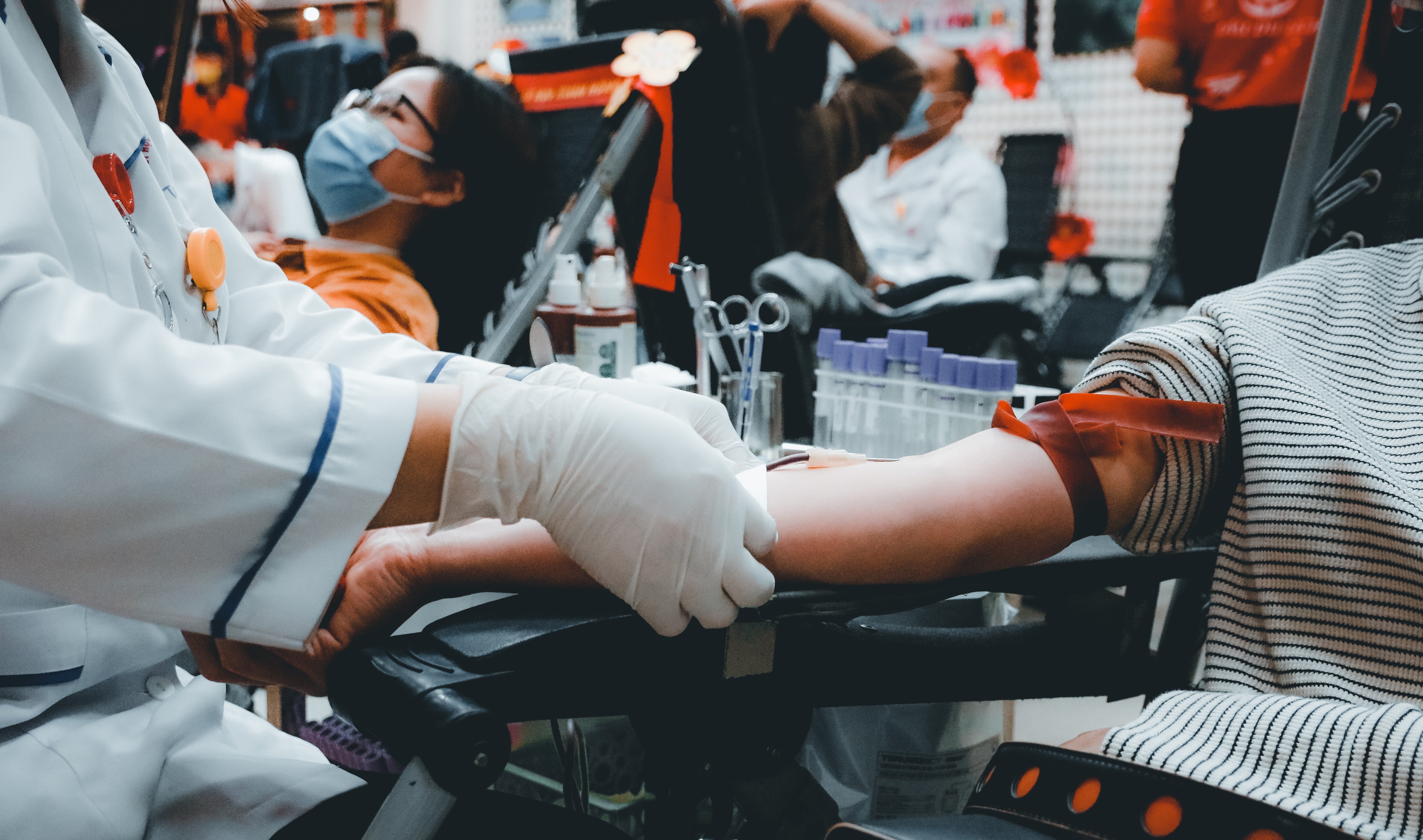Does estrogen cause fluid retention? Yes estrogen definitely does cause water retention. In both males and females there are other hormones and systems the body uses to balance out estrogens affect on fluids and water retention. In this article we will look at the specific role of estrogen on fluid retention and fluid balance.
If this interests you keep reading, we are going to get into the details.
Your Bodies Fluid Regulation Mechanisms
Before we can dive into the how estrogen causes fluid retention, we need to understand the body's fluid regulating mechanisms and the other hormones involved in counterbalancing estrogens affect.
Most of your body's water is inside the cells, or intracellularly. That leaves about five percent, on average, for the body to regulate the overall fluid balance. There are several difference mechanisms and systems the body uses to regulate this fluid. One of the main ones being the kidneys. The kidneys use an intricate system to regulate fluid and electrolyte balance. That system in the kidneys is in turn regulated and controlled by different hormones. While estrogen is involved it is not one of the main hormones that regulate fluid balance. Estrogens do affect the kidneys fluid balancing systems though. Let's first look at some of the other hormones involved with the kidney's fluid regulatory system.
The main hormone responsible for fluid balance inside the body via the kidneys is aldosterone. It is a mineral corticoid hormone and there are several mineral corticoid hormones. As a group these hormones cause increased sodium retention in the kidneys. With that increased sodium retention there is increased water retention, as water tends to follow sodium. Where there are high concentrations of sodium, the water will balance out that high concentration of sodium by flooding to that area. As a result, when there is more aldosterone there will be more water retention.
The Role of Estrogen on Fluid Retention
So aldosterone causes fluid retention and it just so happens that estrogen increases the production of a substance that is needed for aldosterone production. In addition, studies looking at women on long-term hormone therapy do find a relative increase in fluid retention through this sodium retention effect in the kidneys . From these studies it seems that the estrogens effect on fluid retention is mediated through the kidneys. This occurs either through its effect on aldosterone or it may have an a direct effect on the kidneys, similar to aldosterone.
 Now contrast this with progesterone. Progesterone acts to antagonize or block the effects of aldosterone and other mineral corticoid hormones from binding to the kidneys. This leads to less sodium retention and a corresponding decrease in water retention. Only "bioidentical" progesterone has that effect. However not all forms of progesterone have that effect. For instance, other synthetic type of progesterones known as progestins do not. Progestins don't have the counter balance effect on sodium retention and mineral corticoids. So for females on hormone replacement therapy or birth control, this could be the reason you have so much fluid retention. Birth control pills contain progestins and not progesterone. For females that are postmenopausal they may not be taking any progesterone or they may be taking progestins. In some cases, women just take estrogen in the form of estradiol. This can lead to a relative increase in sodium retention leading to a puffy feeling and weight gain. This usually doesn't happen all at once. It happens over a long-term, maybe after you're on it for several months or more.
Now contrast this with progesterone. Progesterone acts to antagonize or block the effects of aldosterone and other mineral corticoid hormones from binding to the kidneys. This leads to less sodium retention and a corresponding decrease in water retention. Only "bioidentical" progesterone has that effect. However not all forms of progesterone have that effect. For instance, other synthetic type of progesterones known as progestins do not. Progestins don't have the counter balance effect on sodium retention and mineral corticoids. So for females on hormone replacement therapy or birth control, this could be the reason you have so much fluid retention. Birth control pills contain progestins and not progesterone. For females that are postmenopausal they may not be taking any progesterone or they may be taking progestins. In some cases, women just take estrogen in the form of estradiol. This can lead to a relative increase in sodium retention leading to a puffy feeling and weight gain. This usually doesn't happen all at once. It happens over a long-term, maybe after you're on it for several months or more.
Even if you are on biodentical progesterone it may not be enough to counterbalance the amount of estrogens. In this case it is just a relative imbalance and the amount of progesterone and estrogen in your formula.
Estrogen Affect on Fluid Retention In Males
Males too can have this problem because testosterone turns into estrogen. One of the metabolites of testosterone is estrogen, specifically estradiol. This occurs through a process called aromatization. Some men have more of this enzyme activity than others. If you have a lot of aromatization your testosterone turns into more estrogen. This estrogen is causes more sodium and fluid retention in the kidneys.
Males don't typically get progesterone supplementation. They could in some cases but it's not as common as for females. Giving a small dose of progesterone would be one way to counterbalance the increased fluid retention in males. More commonly, however, we would work on the relative excess of estrogen by decreasing the aromatization.
Other Hormones Involved with Fluid Retention.
Another consideration in this fluid retention situation is whether or not there is increased cortisol. Cortisol is a mineral corticoid and it has the same effect as aldosterone except not as strong. So it does cause more fluid retention. The other thing to note is that when you are on hormone replacement therapy and your levels are high to high normal, this can elevate your cortisol levels. This too will lead to increased fluid retention. Here is a link to an article that looks at some of these points and how estrogens cause fluid retention.
This should answer the question, "Does Estrogen Cause Fluid Retention." If you have follow up question on this topic, please ask it in the comment section below. If you need help with fluid retention or want a customized plan for your hormone imbalance, click on the link below to get started.

 "My weight was getting so out of control. I started their weigh loss diet program and lost 32 lbs! I have been able to reduce my blood pressure medicine, fit back in my clothes, have tons more energy... Now I am back to eating and my desire for foods has changes drastically. Saved my life!!!
"My weight was getting so out of control. I started their weigh loss diet program and lost 32 lbs! I have been able to reduce my blood pressure medicine, fit back in my clothes, have tons more energy... Now I am back to eating and my desire for foods has changes drastically. Saved my life!!!
 "Dr. Cline and Dr. Terranella have been amazing! For the first time we found doctors that actually listen. They care about how your feeling and try everything they can to get you back to a normal state. I am in love with these guys! If you want amazing care, see these guys."
"Dr. Cline and Dr. Terranella have been amazing! For the first time we found doctors that actually listen. They care about how your feeling and try everything they can to get you back to a normal state. I am in love with these guys! If you want amazing care, see these guys."





 Now contrast this with progesterone. Progesterone acts to antagonize or block the effects of aldosterone and other mineral corticoid hormones from binding to the kidneys. This leads to less sodium retention and a corresponding decrease in water retention. Only "bioidentical" progesterone has that effect. However not all forms of progesterone have that effect. For instance, other synthetic type of progesterones known as progestins do not. Progestins don't have the counter balance effect on sodium retention and mineral corticoids. So for females on hormone replacement therapy or birth control, this could be the reason you have so much fluid retention. Birth control pills contain progestins and not progesterone. For females that are postmenopausal they may not be taking any progesterone or they may be taking progestins. In some cases, women just take estrogen in the form of estradiol. This can lead to a relative increase in sodium retention leading to a puffy feeling and weight gain. This usually doesn't happen all at once. It happens over a long-term, maybe after you're on it for several months or more.
Now contrast this with progesterone. Progesterone acts to antagonize or block the effects of aldosterone and other mineral corticoid hormones from binding to the kidneys. This leads to less sodium retention and a corresponding decrease in water retention. Only "bioidentical" progesterone has that effect. However not all forms of progesterone have that effect. For instance, other synthetic type of progesterones known as progestins do not. Progestins don't have the counter balance effect on sodium retention and mineral corticoids. So for females on hormone replacement therapy or birth control, this could be the reason you have so much fluid retention. Birth control pills contain progestins and not progesterone. For females that are postmenopausal they may not be taking any progesterone or they may be taking progestins. In some cases, women just take estrogen in the form of estradiol. This can lead to a relative increase in sodium retention leading to a puffy feeling and weight gain. This usually doesn't happen all at once. It happens over a long-term, maybe after you're on it for several months or more. 










